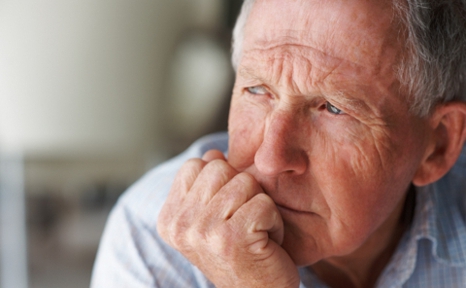


Emotional and physical pain are closely related, and, as a result, people who deal with chronic pain like arthritis are at an increased risk of suffering depression.
It's estimated that as many as 60 percent of chronic pain sufferers experience depression. Specific to arthritis, a recent study found that about 11 percent of the rheumatoid arthritis patients studied had moderately severe to severe symptoms of depression. Other studies put this number for the broader arthritic population closer to 40 percent. And, if arthritic pain has resulted in a loss of independence or mobility or decreased your participation in social activities, the risk of depression is significantly increased.
Furthermore, depression doesn’t just exist alongside chronic pain; it can make it worse. People with chronic pain and depression report having greater pain intensity, less life control and are more likely to use passive-aggressive coping strategies. This can lead to increased rates of morbidity and even mortality.
No one should feel embarrassed or stigmatized by depression. The connection between arthritis and depression is clear. You have a chronic pain condition. Experiencing pain day-to-day with no set end in sight can be brutal. For many, it may be a life-long battle – a fact that can be overwhelming.
Clinical depression can be tricky to recognize, because people experience many of its symptoms as normal reactions to events in their life. Certainly, it’s normal to feel sad or upset about your arthritis, especially during flare-ups or when you’re first dealing with the diagnosis.
But depression is more than just “feeling blue,” or dealing with normal feelings of sadness and grief. Depression is not fleeting and it is not something someone can make himself or herself “snap out of.”
Depression may take the form of loss of appetite, disturbed sleep, feeling worthless or hopeless about life, having trouble concentrating and isolating yourself from others. Another key indicator is when your pain or fatigue are limiting your daily activities, like cooking and grooming, or socializing with friends.
The two most common general symptoms of depression are:
For a full list of other symptoms of depression, go to our sister site, Depression Connect.
If you are suffering from depression because of chronic pain, it’s important to remember you are not alone or at fault. Experiencing depression is not a sign of weakness, and you may need help to overcome it.
A mental health professional, such as a psychologist, can help you handle the physical and psychological repercussions of your arthritis, and help determine a proper treatment plan. Treatment options can include antidepressants, counseling, support groups, meditation, activity and more.
There are a few upsides to the connection between the two diseases: Antidepressant medications are used for their direct pain-relief effect – some, in fact, are painkillers. These medicines can do double-duty, attacking depression and relieving pain.
Studies also show that alleviating depression can set you on an upward spiral. It can help reduce anxiety and stress and even help relieve some of the physical pain of arthritis.
Share your tips for coping with depression and arthritis - or even just coping with the hard days - in the discussion section.
Copyright © www.orthopaedics.win Bone Health All Rights Reserved